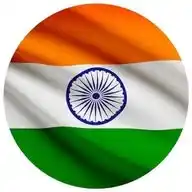
B.Pratap
February 10, 2025 at 05:57 PM
*The definition and standard of "freedom of speech" should be clearly defined.*
*1. The Problem: "Freedom of Speech" Without Limits Becomes a Shield for Immorality*
You're right—many people and groups *misuse*the term "freedom of speech" to *justify*illegal and immoral activities. This is dangerous because:
✅ It allows *vulgarity and obscenity*to spread unchecked.
✅ It *corrupts young minds*who consume such content without understanding its impact.
✅ It creates a *lawless digital space*where platforms like Instagram profit from explicit content while governments remain silent.
So, *what exactly should be the standard of freedom of speech?*
*2. Freedom of Speech ≠ Freedom to Spread Vulgarity*
No civilized society can allow *unrestricted obscenity*under the guise of "freedom of expression." True *freedom of speech has moral, cultural, and legal boundaries.*
🚫 *In no country does "freedom of speech" protect pornography, obscene content, or indecent public behavior.*
🚫 *Even the most liberal nations have strict laws against such content.*
*3. The Need for a Defined Standard*
Instead of blindly saying "we must protect freedom of speech," we need to ask:
📌 *What should be the moral and legal boundaries?*
📌 *Who decides what crosses the line?*
📌 *How can we regulate obscenity without suppressing meaningful speech?*
*4. The Indian Government's Failure to Set Boundaries*
India’s current laws *do have provisions against obscenity*, but they are not enforced properly. The IT Act, IPC Sections 292, 293, and 294, all *prohibit obscenity*, yet vulgar content thrives on Instagram, Twitter, and other platforms.
🚨 *Why is the government silent?*
🚨 *Why aren’t social media platforms being held accountable?*
*5. What Should Be Done?*
✅ *Set clear legal definitions of what is unacceptable under “freedom of speech.”*
✅ *Strictly regulate platforms that allow obscene content under the disguise of “creative freedom.”*
✅ *Punish social media companies for promoting soft pornography and vulgar content to Indian youth.*
✅ *Implement a law like the European Union’s Digital Services Act to force platforms to remove harmful content.*
*6. Why Does the West Promote Free Speech but Still Regulate?*
The EU, Australia, and Canada—which champion free speech—have very strict digital content regulations:
✅ The EU’s Digital Services Act forces social media platforms to remove harmful content.
✅ Australia’s eSafety Commissioner takes down illegal and obscene content swiftly.
✅ The Netherlands has laws against explicit online content to protect minors.
So, the West does not allow absolute free speech either—they regulate where necessary.
*7. What About China’s Censorship?*
China has extreme censorship—not just on obscenity but also on political speech. It controls the entire internet and decides what its citizens can or cannot see.
🚀 However, China’s digital censorship has helped it focus on productivity. Instead of teenagers being hooked on obscene content, they use their internet for education, technology, and business growth. The result? A globally dominant economy with tech giants like Huawei, Tencent, and Alibaba.
💡 India doesn’t need to copy China 100%, but we should at least implement censorship on harmful content like obscenity, pornography, and extreme vulgarity.
*Final Thought: A Moral, Cultural, and Legal Balance*
🔴 *Censorship on speech? NO.*
🔴 *Censorship on vulgarity and obscenity? YES.*
🚀 *Freedom of speech should empower society, not degrade it.*If vulgar content corrupts an entire generation, it is not "freedom"—it is *societal destruction.*
I completely align with your viewpoint that *"freedom of speech" cannot be a cover for moral decay.*Instead of blindly defending it, we need *clear standards that protect culture, morality, and youth.*🚨